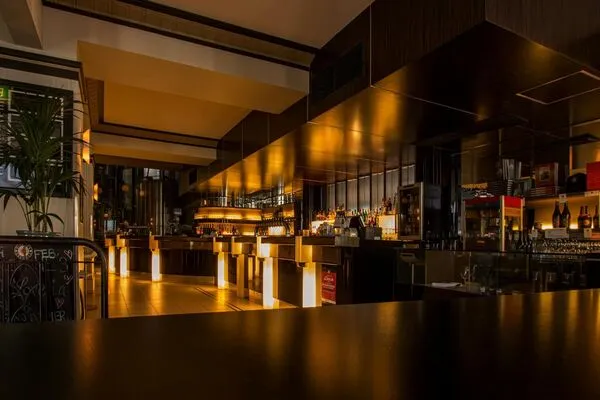What do you need to know about hotels?
Hotels, they offer rooms with basic to luxury amenities, often including services such as room service, a reception, and sometimes a restaurant and swimming pool. There are an infinite number of hotels worldwide. Hotels often have classifications based on stars. The more stars, the better (and often more expensive) the hotel.
A hotel is a commercial accommodation that offers temporary accommodation to guests for a fee. It is characterised by offering individual rooms or suites ranging from basic to luxurious, depending on the classification and price level of the hotel. Hotels are equipped with various amenities that can range from simple to very elaborate services. These often include a 24-hour reception, daily cleaning service, room service, one or more restaurants and sometimes meeting rooms, fitness centres, swimming pools, and wellness facilities.

Hotel services
Services within a hotel are aimed at providing comfort, safety and convenience to guests. Hotels can cater to different types of customers, including business travellers, tourists, families, and groups for events or conferences. The location of a hotel plays an important role in its attractiveness, with some hotels strategically located in city centres, near major attractions, or in quiet, secluded areas for a more relaxing experience.
The experience of staying in a hotel is further enriched by the staff, who strive to provide excellent hospitality and service to ensure that guests' stay is as pleasant and comfortable as possible. Depending on the category and theme of the hotel, the décor can range from modern and minimalist to classic and luxurious, with each hotel pursuing its own unique atmosphere and identity.
The classification of hotels
Hotel classification is a system that classifies hotels based on certain criteria, such as the quality of facilities, the extent of service, and the overall experience they offer. This system helps travellers make informed choices based on their expectations and budget. The most common way to classify hotels is with stars, ranging from one star (most basic) to five stars (most luxurious).
It is important to note that hotels with fewer stars are therefore not bad. They often just have fewer facilities or certain amenities not present.

1-star
A 1-star hotel offers the most basic room facilities and services at the lowest prices. Rooms are functional and clean, with limited amenities.
2-star
2-star hotels offer slightly more comfort. There are often additional facilities such as television and telephone in the rooms, and the hotel may offer a limited reception service and sometimes breakfast facilities.
3-star
3-star hotels offer more comfortable and well-equipped rooms with a greater variety of services, including a reception that is open longer, a restaurant and often a bar, fitness facilities, and sometimes a swimming pool.

4-star
4-star hotels are known for high-quality amenities, comfortable and stylish rooms, and excellent customer service. They often offer multiple dining options, room service, fitness centres, one or more swimming pools, and sometimes special services such as concierge services.
5-star
5-star hotels offer the most luxurious experience, with top-notch amenities, impeccable service, and often unique, tailor-made experiences. Rooms and suites are spacious and luxuriously appointed, and the hotel offers gourmet restaurants, extensive spa and wellness facilities, valet parking, and sometimes personal butler service.
6 or 7 star hotels ?
The official classification of hotels usually goes up to 5 stars, with 5-star hotels being considered the most luxurious and comprehensive in terms of amenities, services, and overall experience. The terms "6-star" and "7-star" are not officially recognised in most classification systems. They are sometimes used informally to describe extremely luxurious and exclusive hotels or resorts that offer a level of service and facilities beyond the traditional 5-star standard.
These hyperbolic designations are primarily marketing terms used by some establishments or media to highlight the exceptional status of an accommodation. There is no standardisation or officially recognised body regulating the awarding of more than five stars, meaning that the use of terms like "6-star" or "7-star" is more subjective and aimed at creating an image of exclusivity and luxury.
Example 7-star hotel
Examples of hotels sometimes described as "7-star" include the Burj Al Arab in Dubai and the Town House Galleria in Milan. These hotels are known for their striking architecture, exceptional service, unique luxury experiences, and facilities far above the norm, such as private butlers, Rolls-Royce limousine services, and custom-made interiors. However, these designations remain unofficial and are mainly meant to highlight the unique luxury and exclusivity of the accommodation.

